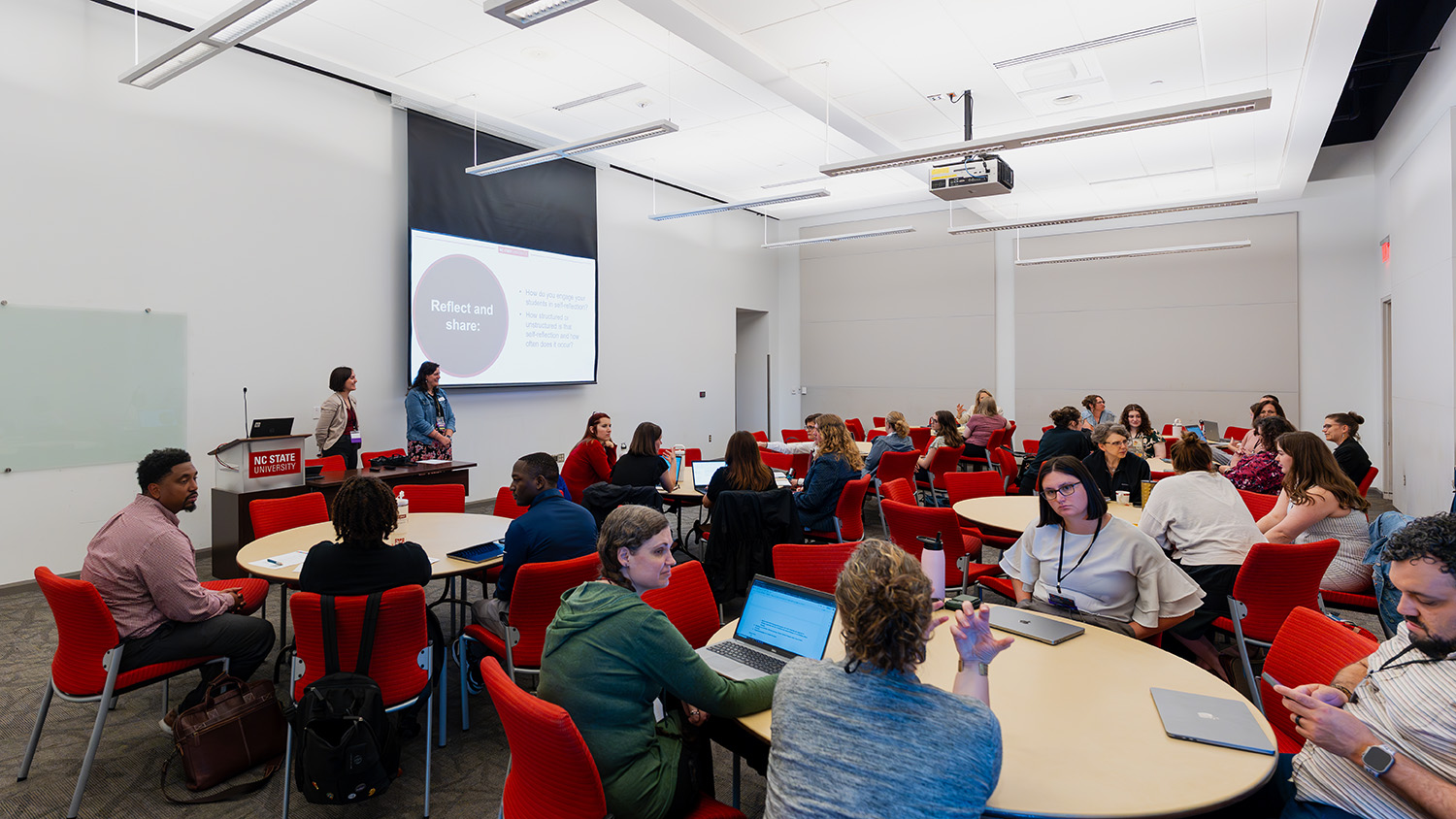The Higher Education Elephant in the Room or, Talk to your kids about college before we do

By Kelly Larrimore
It’s Free College Application Week. Seniors are excited as CACRAO approaches. The hallways are decorated with college pennants, posters, and flyers all saying the same thing: this could be YOU — apply now! This week, a student leaves my classroom in tears because their 1.0 GPA is not high enough to be admitted into Fayetteville State University, the college of their choice. This student did not know that UNC System Universities require a 2.5 minimum GPA to be admitted as an undergraduate student. Before this, we resolve to submit every extra credit assignment possible and to apply to a local community college in the next week.
I do not see this student again until the spring semester. When I ask about their plans, they say the plans have changed. Their face is no longer excited when they talk about their plans for after graduation, like it first was when I asked about their hopes and plans to attend Fayetteville State University. Before the meeting concludes, this student tells me “If I don’t get into [a 4-year] college this year, can I even go at all?”. We begin an application to community college.
It’s the week before winter break. Although most early action deadlines have passed, the college advisor’s door remains perpetually open for students who need just one more nugget of advice before they submit their application for the first time. A student comes through this door with a completed application, essay and all, to Appalachian State University. I am once again the bearer of bad news as this student is informed of the foreign language requirement for admission into UNC System Schools. We spend the remainder of our meeting brainstorming the quickest way to complete 2 units of foreign language before the Spring 2023 semester.
It’s the first week of February. Students who have received admissions decisions excitedly stop by to let me know they did it, that they’re finally in. We review the shiny acceptance packages and fawn over possibilities of staying in dorms and campus life. The eagerness screeches to a halt when the cost of attendance comes up. A student says to me, “How was I supposed to know it would cost this much?”
And now, it’s April.
It is not the student’s fault that the intricacies of the college admissions process are news to them. However, I cannot help to wonder where the ball was dropped along the way. As the college advisor is a resource available to all students at the school, I have spoken with students in 9th grade all the way up to senior year. The majority of students do not have to think for long before providing an answer to “what do you want to BE” or “what do you want to DO” after high school, but I have seldom found a student who is aware of HOW to reach their goal. Most are aware that higher education is a path they want to take, but test scores, GPAs, residency requirements, and funding these goals are a mystery.
And so, how can we blame them for being blindsided and discouraged when students have hoped throughout high school to leave and attend a 4-year institution and are bombarded in their senior year with deadlines, admissions requirements, and the idea of going into thousands of dollars worth of debt before their 18th birthday?
Certainly, it is an individual’s responsibility to themselves to do the research and the work to achieve their own goals. However, as one of the college advisor’s goals is to increase college-going culture in schools and communities, it is imperative that we look OUTSIDE of the individual. On the whole, one of the biggest challenges I run into when speaking with seniors is that they are uninformed about the college admission process. Decoding applications is a daily routine in the first semester of meeting with students, and beyond this processes such as residency determination, financial aid, and admissions/honors college/scholarship requirements become additional roadblocks on a student’s path towards higher education.
And yet, students WANT to go to college. Students WANT to be successful and go on to high-paying careers. And no college advisor wants to be the one to break the news that attending the college of their dreams immediately after graduation won’t be a reality. To truly increase college-going culture in schools and communities, talk to students about college before their senior year. Spend time exploring options and opportunities with students in 9th and 10th grade. Make sure that 11th graders are aware of the steps to get to college in the upcoming year. In order to see more students submitting those applications and enrolling in higher education in their senior year, the college-going seed needs to be planted sooner than later.
Most students are aware that receiving a college degree will afford them more career opportunities and money earned over their lifetime, but the steps to receive that degree are less than transparent to students (especially low-income, first generation students) who desire to get there. The role that college advisors play in these schools and communities is necessary, but the need is too great to be filled by college advisors alone. I challenge administrators, mentors, coaches, and anyone who works with students to talk with them about college BEFORE the advisors do. Remind them that their grades matter, and that college is an investment that will likely require time and money on top of academic effort. Encourage them to think about the possibilities AND to take steps to turn these into a reality.
And so, even in this busy time of year with deadlines, finals, and an epidemic of senioritis filling the air, I challenge you to talk to students about college. Even, and especially, BEFORE the college advisor does.
- Categories:


